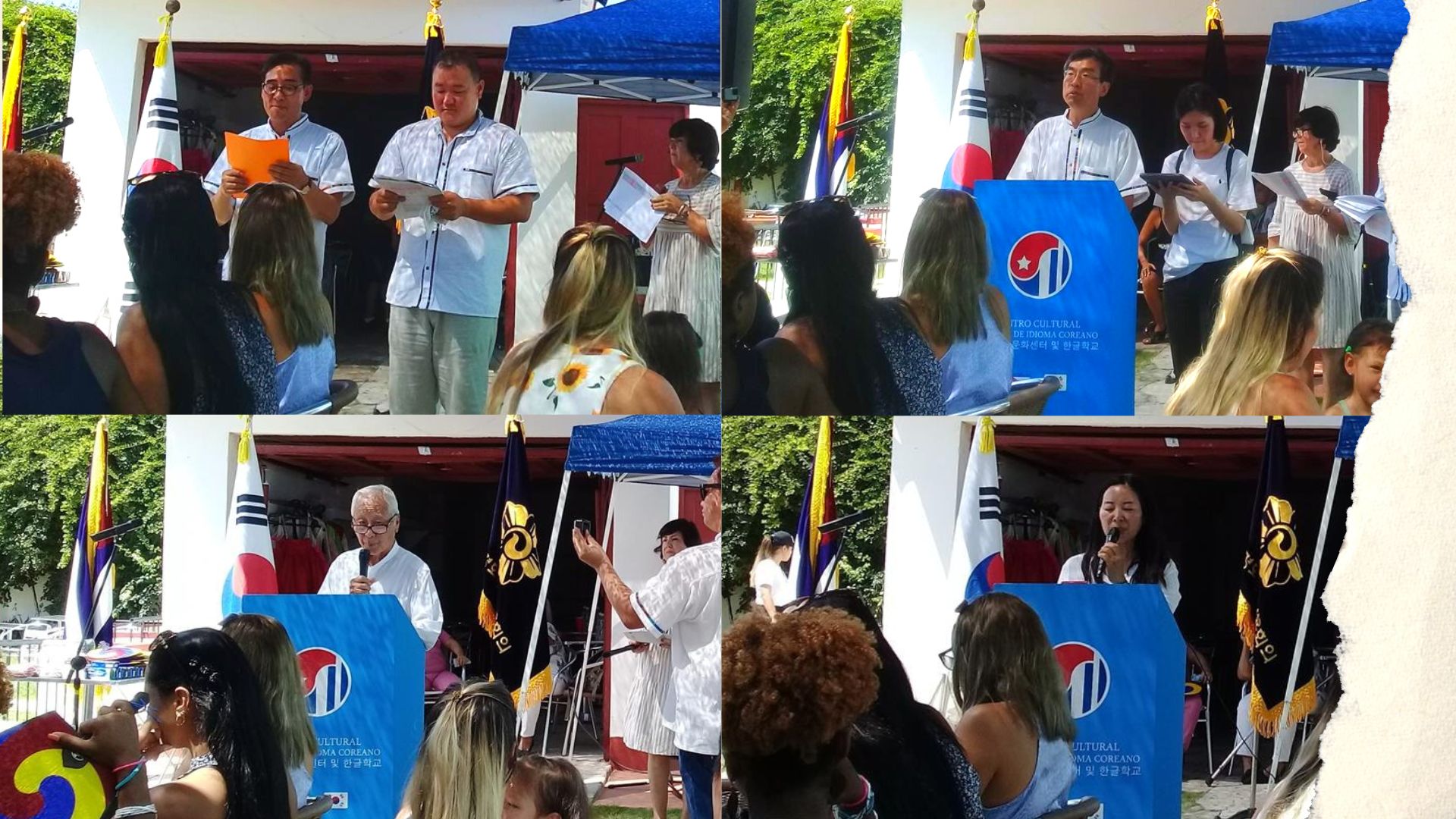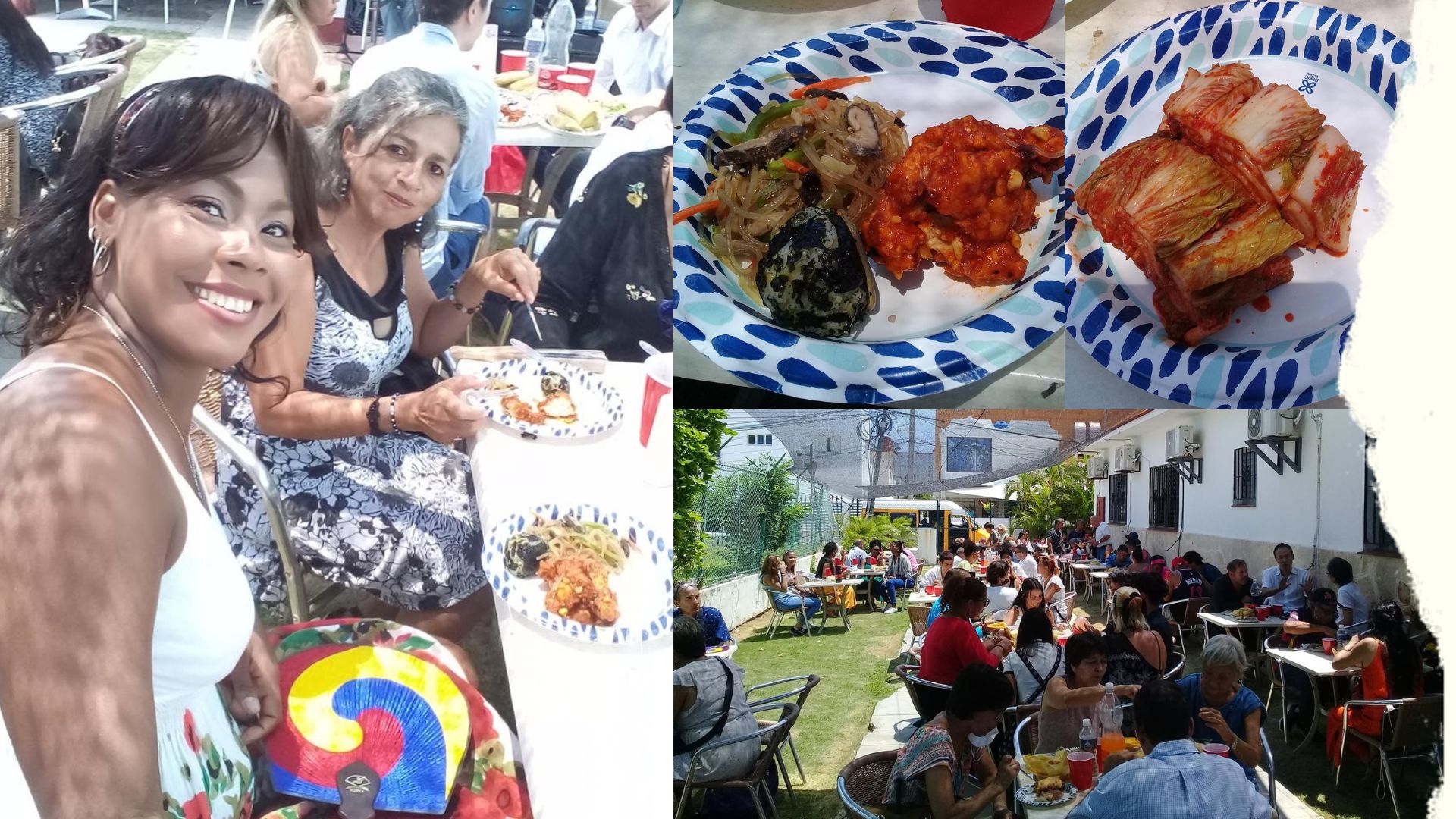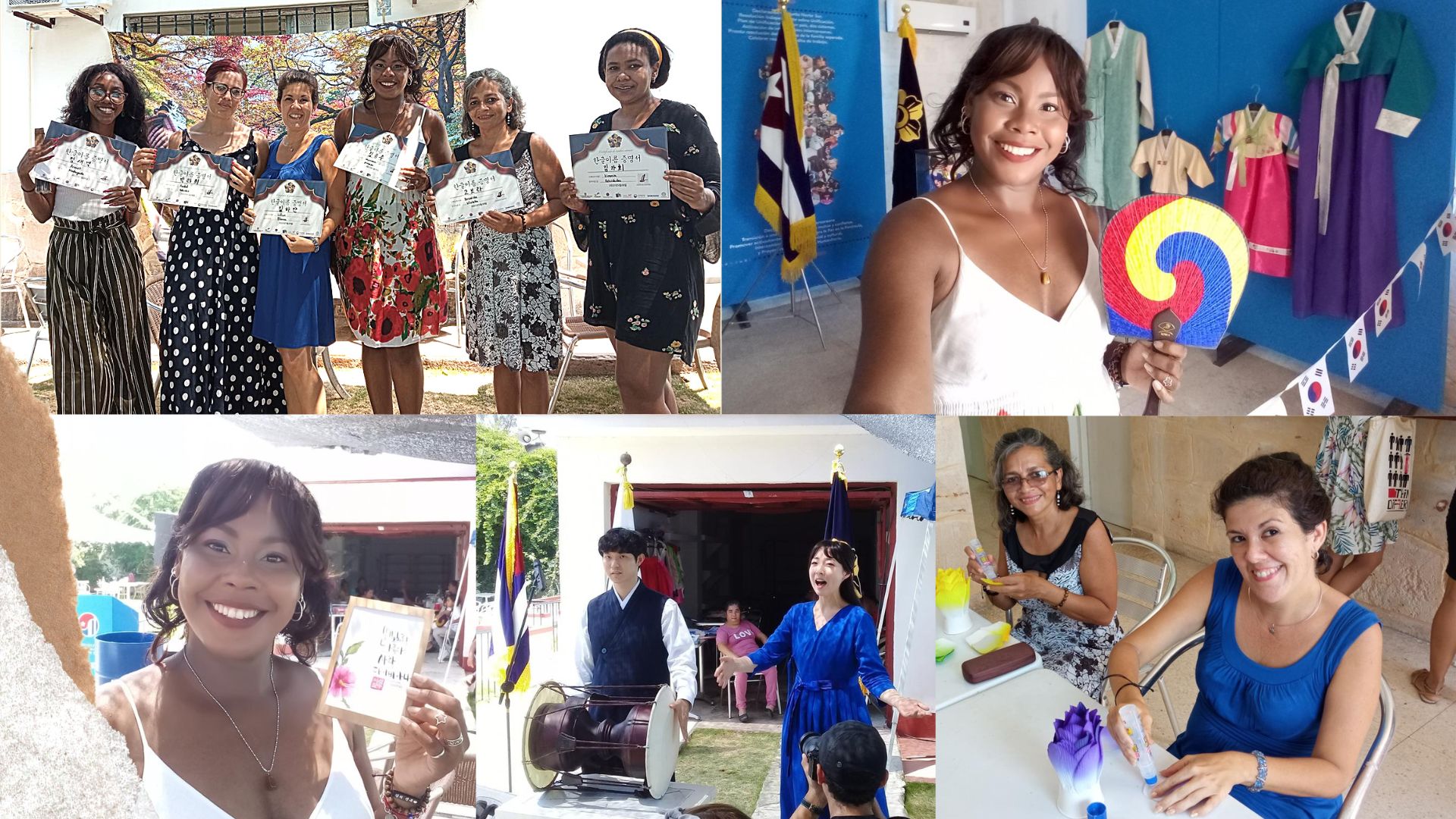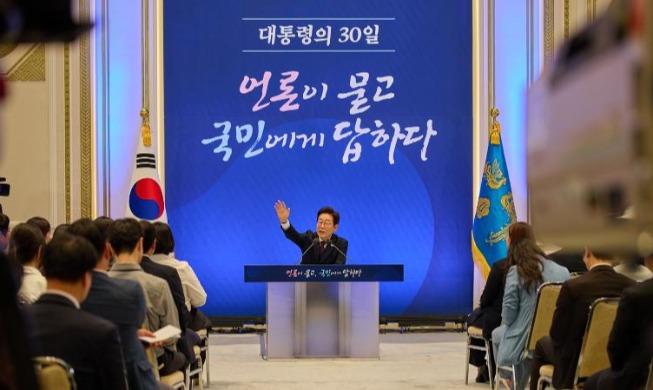- 한국어
- English
- 日本語
- 中文
- العربية
- Español
- Français
- Deutsch
- Pусский
- Tiếng Việt
- Indonesian
By Honorary Reporter Dayviana Diaz from Cuba
Photo = Dayviana Diaz
The 77th National Liberation Day of Korea on Aug. 14 was celebrated at a new Korean culture center in Havana, Cuba. Representatives from the Peaceful Unification Advisory Council of Korea (PUAC) from in and out of the country, descendants of Korean immigrants from Havana and Matanzas, and others attended.
The event's purpose was to inaugurate the center and its Korean-language school at their new facilities under the sponsorship of the PUAC in Central America and the Caribbean and the Korean Embassy in Mexico.

Several people including Korean Ambassador to Mexico Seo Jeong-in (upper right) on Aug. 14 give speeches at the National Liberation Day event in Havana, Cuba.
Attending the event were Korean Ambassador to Mexico Seo Jeong-in; Park Rae-gon, president of the Central America and Caribbean chapter of PUAC of Korea; Antonio Kim, head of a national association of the descendants of Korean immigrants in Cuba; Jeong Ho-hyun, president of PUAC's Cuba chapter; and Yi Chong-yul, director general of the Korea Culture and Information Service under the Korean Ministry of Culture, Sports and Tourism.
Due to a devastating fire last week in the province of Matanzas, the cultural events of the celebration were canceled.
The inauguration of the center was made possible by donations from members of PUAC and Foundation for Koreans Abroad and cooperation of the embassy.
The event began with the singing of the national anthems of Cuba and Korea, followed by a minute of silence for the martyrs and heroes of the Korean homeland and victims of the Matanzas fire. The province has the second-largest Korean community in Cuba.
Donations also went to Koreans in Havana and to the province of Matanzas. In addition, the sign for the center and school was unveiled.
 The celebratory event features Korean cuisine.
The celebratory event features Korean cuisine.Folk musicians Park Jeong-mi and Seok Kyun-yoo, who traveled to Cuba from Korea to attend the inaugural Korea Festival in Cuba from Aug. 12-13, performed the folk song "Arirang" to mark Korean independence.
Traditional Cuban and Korean food were also served at the event. Vivian Oh, who also traveled from the KCC in Mexico, gave workshops on Korean food and delicious dishes like japchae (glass noodles with stir-fried vegetables), spicy Korean-style chicken, kimchi and gimbap (seaweed rice rolls) were the hits of the day.

Members of a Cuba-Korea club attend for the first time the National Liberation Day of Korea celebration in Cuba.
Other events included traditional handicraft workshops including one for making lotus flowers. Another on modern Hangeul calligraphy saw participants receive certificates with their new Korean names.
This was the first time I attended a celebration for an important part of Korean history and it was an honor to share with Koreans who, like Cubans, defend their independence and remember the heroes who gave their lives for national sovereignty, culture and identity.
My hope is that the new center, as Ambassador Seo said, is a gift that promotes Korean culture in Cuba, brings together descendants of Korean immigrants who settled with diligence and integrity in the island despite their difficult past, and serves as an excellent link between Korea and Cuba.
enny0611@korea.kr
*This article is written by a Korea.net Honorary Reporter. Our group of Honorary Reporters are from all around the world, and they share with Korea.net their love and passion for all things Korean.
Most popular
- Grammy-winning producer calls Suga of BTS 'amazing artist'
- Animated 'KPop Demon Hunters' tops Netflix charts in 41 markets
- 'Squid Game' events to pump up K-Content Seoul Travel Week
- Reunited BLACKPINK releases video preview of world tour
- 'Universal love, family' themes fuel success of 'King of Kings': director
